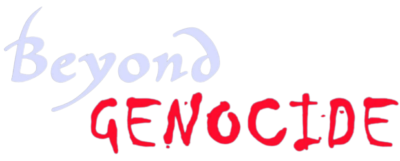Resources on Cultral Identity, Collective violence and Trauma
As a form of collective memory, cultural memory and the approaches to the study of cultural memory employs spatial and temporal concepts as well as material objects with which to transmit beliefs of society, ethnicity and identity within the group from one social sphere and one generation to the next. How is collective trauma, cultural identity and cultural memory linked to the many dimensions of cultural expression in post conflict and current conflict driven societies? The resources in this section will thresh through the dimensions between the past and the present, culture, trauma and the transmission of memory.
Cultural Memory Studies: An International and Interdisciplinary Handbook: This handbook represents a broad perspective on the concept of cultural memory of the possible objects of cultural memory studies – ranging from individual acts of remembrance within a specific social context to a national and transnational memory as well as “invented” memory. This volume outlines the “cultural toolbox” in the array of different disciplines which create vocabularies, methods and traditions across intellectual and linguistic boundaries.
An Introduction to Cultural Studies: This short video introduces the field of cultural studies as an interdisciplinary and sometimes “anti-disciplinary” approach to the study of culture and its broad and complex array of signifying practices. Identifying the umbrella of ideas and material objects that define the values, beliefs and knowledge of a society defines a “culture”. The principles and components of culture and its modes of transmission are introduced and explained.
Cultural Sociology: Yesterday, Today and Tomorrow: This You Tube video lecture explains the concept of cultural sociology as a phrase and an institution as a field of academic study. Critical to the information in this lecture is the emphasis on the differences between cultural studies and cultural sociology studies.
Cultural Trauma and Collective Identity: Toward a Theory of Cultural Trauma: American sociologist, Jeffrey Alexander, one of the world’s leading social theorist’s, defines the theory of cultural trauma in this volume. The collectivized experience of a traumatic event is explored as a cultural phenomena which shapes the very foundations of collective cultural identity, expression and experience that is transformative and ineradicable to the collective definition of the group.
Cultural Trauma and Social Solidarity: In this You Tube lecture by Jeffrey Alexander defines the experiences and definitions of cultural trauma as a form of necessary social solidarity. He asks the central question: Is another’s suffering our own suffering? He further questions whether a shared expression of the collective’s experience of the root causes of trauma as a form of universal moral responsibility can repair the institutional and legal networks to society?
Memory, Trauma and Identity: This volume, edited by Ron Eyerman provides a framework for analysis to the theory of cultural trauma, cultural transmission of trauma and the public, accepted memory between the “incident and articulation” of the collective traumatic experience. Essays in the volume present questions such as what are the sociological and cultural markers that are perceived as a violation of the collective’s fundamental cultural presuppositions and how do we understand and interpret individual traumatic memory and its socialization to a collective traumatic identity formation?
Collective Trauma and the Social Construction of Meaning: This engaging journal article by Gilad Hirschberger delves into the critical issues of the impact of trauma on the construction of collective meaning. Central to understanding the impact of trauma on a society and the processes of memory, memorialization and collective conceptualizations or creative cultural expression are the principles that represent an “irreplaceable ingredient”. Hirshberger examines the conceptualization, creation, curation, public construction and transgressions which define the “crisis of meaning” that is inherent in collective traumatic experiences. .
Trauma and Public Memory: Editors Jane Goodall and Christopher Lee, in this volume, explore the kinds of narratives and commemorative practices that have evolved, globally in the aftermath of large scale traumatic historical events. The distinction between “collective memory” and “public memory” are delineated to prepare the reader to recognize the structural foundations of creative artistic expression as a form of cultural expression crafted to represent a traumatic event for the public sphere. A wide array of mediated forms of expression are examined and evaluated.
Genocide: Truth, Memory and Representation: This edited volume by Alexander Hinton and Kevin O’Neill covers the central issue of understanding “genocide” from an anthropological perspective. Proving, remembering, representing and re-imagining a genocidal past is constructed through the narratives and counter-narratives articulated in several case studies. Each section focuses on the imperatives of “truth” “memory” and “representation” as the rubric through which victims, perpetrators, witnesses and outside observers all imagine a past genocidal trauma.
Understanding Atrocities: Remembering, Representing and Teaching Genocide: This wide-ranging collection of essays thread together the multifaceted, temporal views on genocide affect collective understanding and prevention. The essays question the limits of representation and understanding within the fields of law, history, literature and education. What are the multidisciplinary challenges that learning about genocide confront? How do established social patterns inhibit catalytic reflection on learning parameters? What are the challenges we face in learning and teaching about extreme acts of collective violence?
Memory in Culture: “This book questions the sociocultural dimensions of remembering. It offers an overview of the history and theory of memory studies through the lens of sociology, political science, anthropology, psychology, literature, art and media studies; documenting current international and interdisciplinary memory research in an unprecedented way.” (Palgrave MacMillan)




